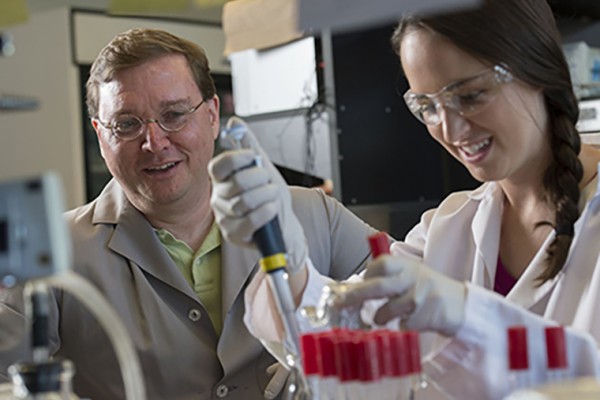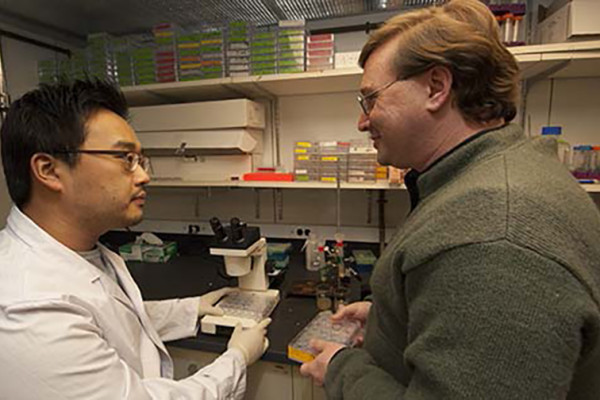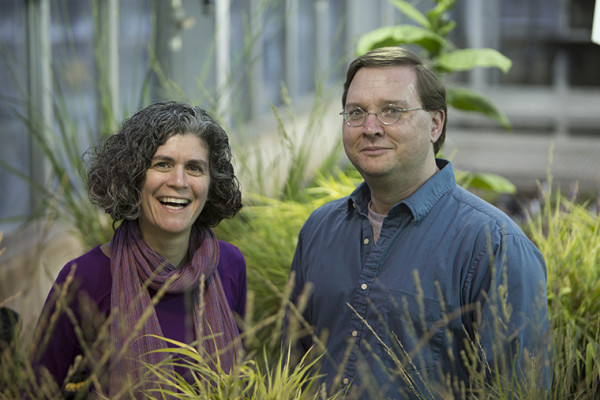Washington University’s Joseph Jez is one of 15 ‘million dollar professors’
Joseph Jez, PhD, co-director of the plant and microbial biosciences graduate program at Washington University in St. Louis, is one of 15 professors nationwide to receive a $1 million HHMI grant to bring the creativity he has shown in the lab to the undergraduate classroom. He plans to use the grant to establish a two-year program called the Biotech Explorers Pathway that will introduce entering students to both the science and business of biotechnology.
A protein key to the next green revolution sits for its portrait
Scientists are beginning to talk about re-engineering crop plants so that, like legumes, they will have on-site nitrogen-fixing systems, either in root nodules or in the plant cells themselves. The structure of a protein called NolR that acts as a master off-switch for the nodulation process, published in the April 29 issue of PNAS, brings them one step closer to this goal.
Danforth Fellowships in plant sciences announced
Chancellor Mark S. Wrighton has announced the creation of new four-year fellowships in the Division of Biology and Biomedical Sciences, made possible by a generous gift from William H. Danforth. Danforth hopes the new fellowships will attract highly motivated students to this field of study and foster a culture of intellectual entrepreneurship focused on research and innovation in plant sciences.
Key part of plants’ rapid response system revealed
A cross-Atlantic collaboration between scientists at
Washington University in St. Louis, and the European Synchrotron
Radiation Facility and the European Molecular Biology Laboratory, both
in Grenoble, France, has revealed the workings of a switch that
activates plant hormones, tags them for storage or marks them for
destruction.
Washington People: Joseph Jez
The lab of Jospeh Jez, PhD, associate professor of biology in Arts & Sciences, crystallizes proteins so that people can see what they look like in three dimensions. But getting proteins to crystallize is difficult and involves an element of luck — so one of Jez’s main jobs is to be the lab’s unreasonable optimist.
Scientists characterize protein essential to survival of malaria parasite
A biology lab at Washington University in St. Louis has successfully cracked the structure of an enzyme made by Plasmodium falciparum, the parasitical protozoan that causes the most lethal form of malaria. Plasmodium cannot live without the enzyme, which is uses to make cell membrane. Because people don’t make this enzyme, it is an ideal target for an anti-malarial drug. Such a drug might kill Plasmodium but have minimal side effects for people.



